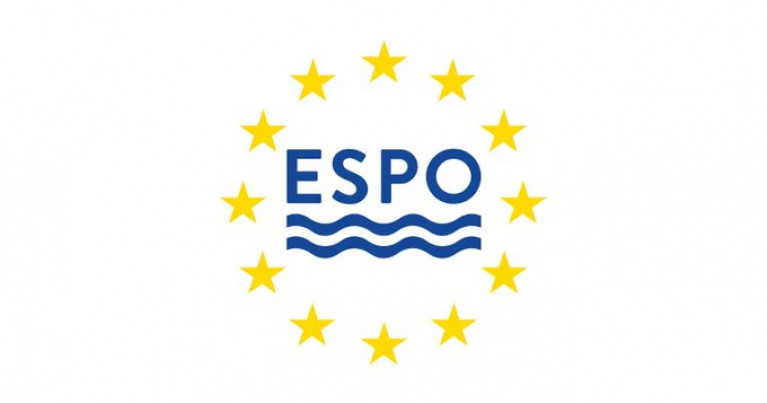Displaying items by tag: EUETS
Only a Well-Designed Maritime EU ETS with Dedicated Funding will Accelerate Greening of the Shipping Sector
The European Sea Ports Organisation (ESPO) recognises the maritime EU Emission Trading System (EU-ETS) can be a powerful mechanism to accelerate the green transition of the sector as European ports continue to support the extension of the ETS to the maritime sector.
However, this mechanism will only deliver as intended if the measure is well-designed. This means that:
- All efforts must be made to avoid carbon and business leakage to neighbouring ports
- The ETS revenues of the shipping sector should be predominantly used to finance investments onboard ships and in ports to make this green transition happen.
Whereas the European Parliament and Council have made substantial steps forward in addressing the carbon and business leakage threat resulting from the scope of the proposal, further progress needs to be made to ensure that the maritime EU ETS revenues are being used to green the maritime sector and ports.
European ports call on EU Parliament and Council to ensure that the maritime EU ETS revenues are used for sector-specific investments to facilitate the deployment and use of sustainable alternative fuels, including the electrification of vessels and onshore power infrastructure in ports.
ESPO has co-signed a joint maritime industry statement supporting such investments and calling for earmarking of ETS revenues in the final text. The industry statement is attached here with this press release issued today.
In line with this statement, the final text on EU ETS must foresee dedicated maritime calls under the Innovation Fund, which would serve to accelerate the decarbonisation of the maritime sector.
For ESPO, the Innovation Fund should support the deployment of new technologies that effectively avoid generating greenhouse gas emissions, whilst bridging the funding gap for mature but not yet commercially viable projects. If only “first-of-a-kind projects” can be financed under the Innovation Fund, the added value of dedicated funding in the Innovation Fund remains very limited.
“The aim of the EU-ETS maritime is to make the greening of the shipping sector happen. This implies important investments in new technologies all over the network, both on the ship side and at shore side. The success of EU-ETS will largely depend on the use of the revenues. To be fit for 55, we need to fund for 55% emission reductions. In this phase of the negotiations, we should not get stuck on the name or the structure of the fund, but on the way the funds are used. In that respect, it is important to understand that financing only first of a kind-projects will not deliver the progress in greening we aim for." says Isabelle Ryckbost, ESPO Secretary General.
The final text on EU ETS should also encourage Member States to use the revenues generated from the auctioning of allowances to investments in maritime and ports.
European ports remain committed to help deliver a final text on EU ETS that makes the green transition of maritime possible.
Ports in Europe Welcome EP-TRAN Efforts to Solve Risk of Carbon and Business Leakage
The European Parliament Committee for Transport and Tourism (TRAN) yesterday adopted the draft opinion of MEP Novakov on the Commission proposal to bring the maritime sector into the EU Emission Trading System (ETS).
The European Sea Ports Organisation (ESPO) welcomes the TRAN opinion’s clear recognition of the risks of carbon and business leakage that will occur if ships are able to avoid the regional EU ETS in different ways.
Europe’s ports are in favour of the inclusion of shipping in the EU ETS, but fear however that the current Commission proposal will lead to serious carbon leakage through rerouting of ships outside of the ETS scope, creating adverse effects on emission reductions and a negative impact on European port business.
The risk of evasive practices by ships must be better assessed and addressed in order to develop effective solutions that prevent carbon and business leakage. European ports therefore welcome the efforts made in the adopted TRAN opinion to find solutions to the threat of carbon and business leakage.
“The greening of the shipping sector remains a top priority for Europe’s ports. Putting a price tag on emissions can certainly help in stimulating the greening efforts. But this measure will not deliver if ships can reroute outside the scope of ETS. This rerouting is a real risk and must be avoided. In addition to the carbon leakage such rerouting will create, it could deal a death blow to certain strategic European ports at a time when these ports are needed more than ever before. It is very reassuring that the Transport Committee understands this issue and tries to find a solution. We hope the TRAN Committee’s position will be taken into account by the ENVI Committee,” says Isabelle Ryckbost, ESPO Secretary General.
ESPO calls for the ENVI Committee to more clearly consider and address carbon and business leakage in the forthcoming report by MEP Peter Liese. Specifically, European ports supports a dedicated ex ante impact assessment on the risk of evasion and its impact on maritime and ports.
Based on the findings of such an impact assessment, specific preventive measures should be introduced to make it less attractive for ships to change their routes, divert calls, or engage in other evasive behaviour in order to avoid paying into the EU ETS. Such measures would be in line with the polluter pays principle, and are a precondition for an effective maritime ETS.
More work is needed to ensure that the maritime EU ETS delivers the greening of shipping, whilst safeguarding the competitiveness of the European maritime sector and ports.
European ports look forward to helping policymakers find solutions to the issue of carbon and business leakage to deliver an effective maritime ETS.




























































